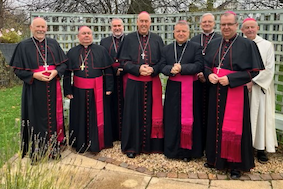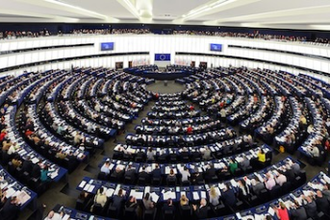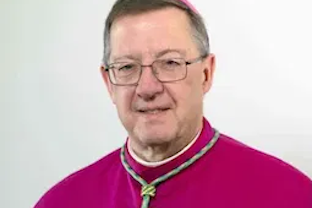Catholic response to Amnesty International's decision on abortion
The following statement, from the Bishop of East Anglia, the Rt Revd Michael Evans, was issued in response to Amnesty International's stance on abortion after its 28th International Council Meeting in Mexico: Amnesty and Abortion: after the International Council meeting in Mexico.
The International Council of Amnesty International met in Mexico from 11-17 August, and issued a press release on 17 August which included the following paragraph: 'With the prevention of violence against women as its major campaigning focus, Amnesty International's leaders committed themselves anew to work for universal respect for sexual and reproductive rights. Amnesty International committed itself to strengthening the organisation's work on the prevention of unwanted pregnancies and other factors contributing to women's recourse to abortion, and affirmed the organisation's policy on selected aspects of abortion (to support the decriminalisation of abortion, to ensure women have access to health care when complications arise from abortion, and to defend women's access to abortion, within reasonable gestational limits, when their health or human rights are in danger), emphasising that women and men must exercise their sexual and reproductive rights free from coercion, discrimination and violence.'
It is much to be regretted that delegates failed to challenge the decision of the earlier meeting of Amnesty's International Executive Committee to support the decriminalisation of abortion; access to quality services for the management of complications arising from abortion; and legal, safe and accessible abortion, subject to reasonable limitations, in cases of rape, sexual assault, incest and risk to a woman's life.
The Catholic Church has no desire for women who have been through the trauma of abortion to be punished; they need compassion and healing Women who suffer complications after an abortion should obviously receive quality care. But our proper indignation regarding pervasive violence against women should not cloud our judgement about our duty to protect the most vulnerable and defenceless form of human life.
The International Convention on the Rights of the Child was adopted by the United Nations General Assembly in 1989, and became a binding treaty for those countries which ratified it. Its Preamble quotes from the 1959 Declaration on the Rights of the Child, that 'the child, by reason of his or her physical and mental immaturity, needs special safeguards and care, including appropriate legal protection, before as well as after birth'.
This must surely be part of the body of international human rights law to which Amnesty International is committed. The Catholic Church shares Amnesty's strong commitment to oppose violence against women (for example, rape, sexual assault and incest), but such appalling violence must not be answered by violence against the most vulnerable and defenceless form of human life in a woman's womb.
Catholics would want to show practical compassion for such women, and ensure for them all the medical and spiritual care and support they need. But there is no human right to access to abortion, and Amnesty should not involve itself even in such extreme cases. Amnesty opposes torture and the death penalty under all circumstances, however dire the situation; the same should be true for Amnesty's mandate to 'Protect the Human' - before as well as after birth. To allow for the use of torture in just one extreme situation (e.g. a terrorist threat) would compromise Amnesty's absolute rejection of torture.
To support access to abortion even in dire situations compromises Amnesty's mandate to 'Protect the Human'. In time Amnesty may seek to develop this policy further, but even this current limited decision makes it very difficult for Catholics to remain members of Amnesty or to give it any financial support. Very regretfully, I will be ending my 31 year membership of Amnesty International, which included in the 1980s several years on the British Section Council and its Religious Bodies Liaison Panel.
I remain deeply committed to Amnesty's original mandate: to work for freedom for prisoners of conscience, an end to torture and the death penalty, and fair trials for all.
Amnesty International has played an enormously important role in the world since its foundation by Peter Benenson, a Catholic, in 1961. It has much important work to do in the future. This regrettable decision will almost certainly divide Amnesty's membership and thereby undermine its vital work. Among all human rights, the right to life is fundamental. Commitment to work to 'Protect the Human' can only be deeply compromised by any support for access to abortion.
Bishop Michael Evans has been a member of Amnesty International since 1976. In the 1980s, he was a member of the then British Section Council for two years, coordinated a local Amnesty campaign for the release of a Soviet prisoner of conscience, and chaired the Section's Religious Bodies Liaison Panel for many years. He also wrote the latest Amnesty prayer for their 'Protect the Human' campaign.


















